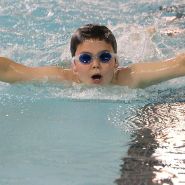It goes without saying that effective lesson planning is of the utmost importance in PE.
There are certain factors that need to be considered during the planning process; if the teacher gets these wrong, the lesson will fail to be effective and will negatively influence the students’ learning
.These factors include:
- Ability of the students
- School facilities
- If other members of staff are wanting to use the facilities
- Objectives of the session
- Previous lessons
Ideally, teachers will plan lessons weeks in advance, even modules, at a time, as this will allow for the teacher to be able to plan when their assessments will take place. Assessments can be conducted in a variety of ways, however, they need to be planned so that the scores and feedback can be recorded, monitored and tracked ready to be used by the school.
When looking in advance to the assessment of students at the end of the module, it is important to be able to plan the lessons in a way that gives the students the greatest opportunity to achieve the highest standards possible and to keep this in mind from the start. The different methods of assessment we will look at are continual assessment; formative and summative assessment; and final assessment.
When teaching students, the lesson can be broken down into 6 stages:
- Learning objectives
- Presenting new information
- Interpret information
- Construct information
- Demonstrate information
- Review
These can be achieved through a number of methods, either the common method of prerequisite skills being developed in drills then followed by a game/match or through an approach such as teaching games for understanding (TGfU).
Continual assessment
This can take place with or without the students being made aware of the situation. When creating a lesson plan with this form of assessment in mind, being able to outline a lesson plan that allows for development and the most accurate results is vital. From my personal experience, I would choose this method with the lower ability groups; it will give them a better chance of achieving a higher grade as they are able to show their talents over a longer duration of time and in a less stressful environment.
Formative and summative
Formative and summative assessment can be extremely effective in PE as it allows constructive feedback to be given through the formative assessment in order to guide improvement for each student. Formative assessment can therefore be a useful tool for learning on a lesson by lesson basis, with summative assessment in the form of tests, perhaps at the end of the module, to establish overall progress and effectiveness of the curriculum.
The risk with this type of assessment is ensuring that the students perform to the best of their ability during the formative assessment. An accurate read enables lessons from that point onwards to target weaknesses accordingly, so that when the summative assessment takes place, improvement has been made. If students fail to see the importance of the formative assessment, the results from this can negatively impact progress between the formative and the summative assessment.
Final assessment
This is the traditional method of having the final week of the specific sport being only in a competitive match or game scenario, allowing the greatest amount of time for the students to demonstrate their skills. The advantage of this method is that, when planned effectively, the students have the opportunity to demonstrate all of the skills taught through the SOW. The assessment and grading thus takes place at the end of the module.
Having attempted all of the above methods with different abilities and age groups, it is clear that careful planning and effective lesson plans pay off when it comes to assessing the students. Planning the assessment at the beginning of the module and focusing all the work around it can therefore be more effective than planning lesson by lesson.
However, assessments do not need to be all about the main topic and end results; there can be mini-assessments in every lesson that are grade based. These assessments can test the students’ knowledge and understanding of the learning objectives, perhaps demonstrating this multiple times during a single lesson.
This can be considered part of the continuous assessment method, but it can be incorporated into the other forms of assessment. If a teacher is going to combine these methods, extra time in lessons should be allowed in order for mini assessments to take place and to have a clear understanding of the students’ abilities.
Assessment in PE can be difficult due to it largely being about personal perspective; there is not always a right or wrong answer. With effective planning, the highest possible marks can be achieved by your students.
It is worth remembering that not all students will perform to their highest ability through just one type of assessment method, this therefore means that the teacher needs to plan and evaluate the best strategy for each class.










